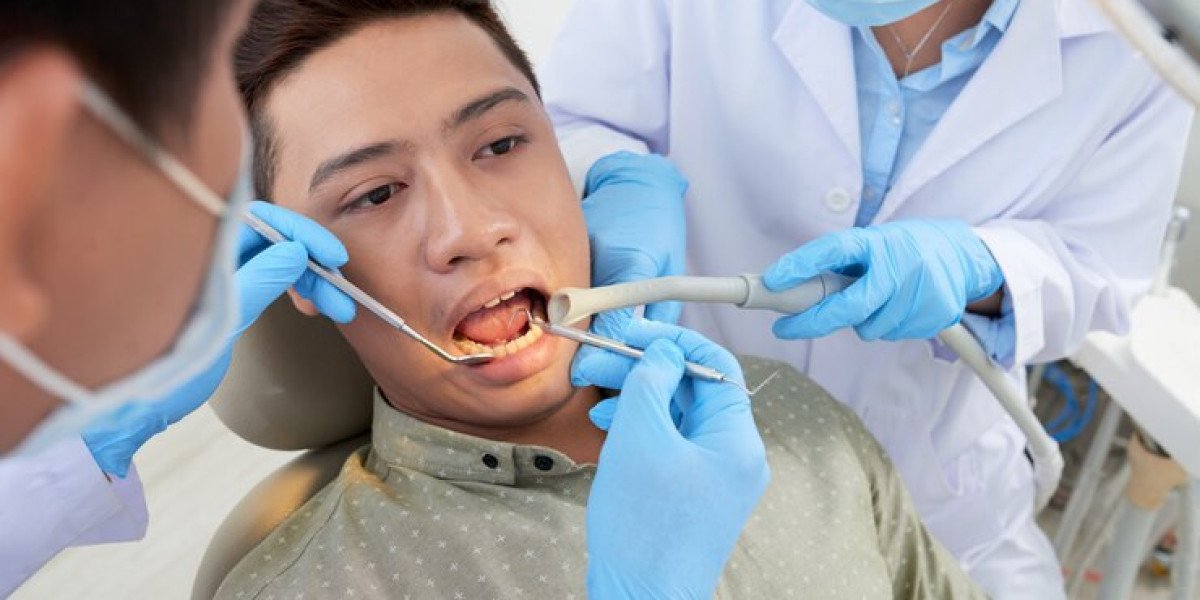Having a tooth extracted can be stressful, but the real challenge often comes when you’re home and trying to rest. The first night after tooth extraction is crucial for a smooth recovery, and with the right tips and a little preparation, you’ll be more comfortable and on the road to healing quickly.
In this guide, we’ll cover everything you need to know to make your first night as easy as possible—from managing pain to getting a good night’s sleep.
What to Expect After Tooth Extraction
Once the numbness from the procedure wears off, you may start to feel some discomfort. It’s normal to experience mild pain, swelling, and a little bleeding. Don’t panic! These are typical side effects that most people face after a tooth extraction. The key is knowing how to handle them, so you can rest well and feel better by morning.
Pain Management
Pain is usually the number one concern for people after a tooth extraction. But the good news is, with the right care, you can keep it under control.
Take Your Medication on Time: Your dentist will likely prescribe painkillers or recommend an over-the-counter option like ibuprofen or acetaminophen. Make sure to take them as directed. Don’t wait until the pain gets too strong—stay ahead of it by taking your medication on time.
Apply a Cold Compress: Swelling can contribute to discomfort, especially during the first night. Applying an ice pack or cold compress to the outside of your cheek, near the extraction site, can help reduce swelling and numb the area. Apply it for 15-20 minutes at a time, then give yourself a break before reapplying. Ice is particularly helpful during the first 24 hours after the procedure.
Elevate Your Head: When you sleep, prop your head up with pillows or rest in a recliner. Keeping your head elevated helps reduce swelling and prevents blood from pooling at the extraction site, which can cause throbbing pain.
Controlling Bleeding
It’s normal to have some bleeding for a few hours after the extraction. Your dentist will give you gauze to bite down on to help stop the bleeding. Here’s what to do if it continues into the evening:
Bite Down on Fresh Gauze: Replace the gauze every 30-45 minutes until the bleeding slows down. The pressure helps form a clot, which is essential for healing.
Use a Tea Bag: If bleeding persists, try biting down on a damp tea bag. The tannic acid in black tea can help with clotting and reduce bleeding.
Remember, it’s important to avoid rinsing, spitting, or sucking on straws for the first 24 hours. These actions can dislodge the blood clot that’s forming and lead to a painful condition known as a dry socket.
What to Eat (And What to Avoid)
When it comes to eating after tooth extraction, choosing the right foods is key to avoiding irritation at the extraction site.
Best Foods to Eat
Stick to soft, easy-to-eat foods during your first night after tooth extraction. Some good options include:
- Mashed potatoes
- Smoothies (without a straw)
- Applesauce
- Yogurt
- Soup (make sure it’s not too hot)
- Scrambled eggs
These foods are gentle on the mouth and won’t irritate the extraction site.
Foods to Avoid
For the first few days, steer clear of:
- Crunchy or hard foods (chips, nuts, popcorn)
- Spicy foods (these can irritate the extraction site)
- Hot foods or drinks (heat can increase swelling)
- Acidic foods (citrus fruits and tomatoes)
And, of course, no straws—the suction can pull out the blood clot, causing a painful dry socket.
Getting a Good Night’s Sleep
After a tooth extraction, one of the most common concerns is, "How will I sleep comfortably?" With some simple adjustments, you can get the rest you need for your body to heal.
1. Elevate Your Head
As mentioned earlier, keeping your head elevated is a must. You can do this by propping up with pillows or even sleeping in a recliner if that’s more comfortable. This position helps reduce swelling and prevents excessive bleeding during the night.
2. Sleep on Your Back
Sleeping on your back is ideal, especially if you’ve had multiple teeth extracted. It keeps pressure off the extraction site and minimizes the risk of irritating the area. Avoid sleeping on your side or stomach, as this could press against the extraction site and cause discomfort.
3. Take It Easy
Your body needs time to recover, so don’t push yourself too hard. Avoid any strenuous activities during the first 24 hours and give yourself plenty of time to rest. The more relaxed you are, the faster your body will heal.
Common Concerns and How to Handle Them
It’s perfectly normal to feel a little anxious about your first night after tooth extraction. Below are a few common concerns and how to handle them.
Bleeding
If bleeding persists beyond the first few hours, try using a tea bag as mentioned earlier. Also, avoid spitting or rinsing too forcefully—this can disturb the clot and cause more bleeding. If the bleeding becomes heavy or doesn’t stop, contact your dentist.
Pain
Mild to moderate pain is normal after a tooth extraction, but if you feel severe or worsening pain, especially after the second day, it could be a sign of dry socket. In that case, call your dentist immediately for treatment.
Swelling
Swelling is common during the first night after tooth extraction and can last for a few days. Continue using an ice pack on and off for the first 24 hours. If swelling increases after 48 hours, or you notice signs of infection (such as fever or pus), reach out to your dentist.
FAQs
How long will the pain last after tooth extraction?
Pain usually peaks within the first 24-48 hours and should start to subside after that. If the pain worsens or doesn’t improve after a few days, contact your dentist.
Can I brush my teeth the first night after extraction?
You should avoid brushing near the extraction site on the first night, but you can gently brush your other teeth. Be careful not to disturb the blood clot.
How long will the swelling last?
Swelling is common and can last for 48-72 hours. Continue using ice packs during the first 24 hours, and switch to warm compresses after 48 hours to reduce any remaining swelling.
When can I start eating solid foods again?
You can gradually reintroduce solid foods after 2-3 days, depending on your comfort level. Avoid crunchy, hard, or spicy foods until the area has healed.
What should I do if I think I have a dry socket?
A dry socket is a condition where the blood clot is dislodged, exposing the bone and nerves. If you experience severe, radiating pain after a few days, contact your dentist for treatment.
Conclusion
Your first night after tooth extraction doesn’t have to be a painful or uncomfortable experience. By following these tips for managing pain, swelling, and bleeding, you’ll be on your way to a smooth recovery. Remember to rest, eat soft foods, and take it easy—your body needs time to heal, and you’re doing great! If anything feels off or you’re concerned about your recovery, don’t hesitate to reach out to your dentist. In a few days, you’ll feel much better, and your mouth will thank you for the extra care.








